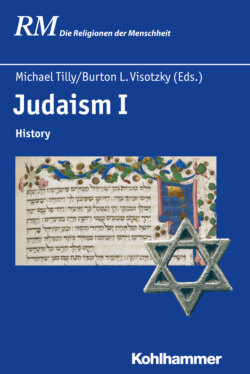Читать книгу Judaism I - Группа авторов - Страница 44
На сайте Литреса книга снята с продажи.
2 Judaism and Hellenism in the Land of Israel/Judea—»Palestinian Judaism« as »Hellenistic Judaism«6 2.1 The reception of Greek/Hellenistic culture in Judea7 Greek language
ОглавлениеThe final establishment and dissemination of the Koinē was probably the most valuable and the most permanent fruit of Alexander’s expedition.8
Greek became the primary language of writing not only in Egypt. Thus, among the two thousand or so documents of Zenon correspondence, just a few are Demotic, and none Aramaic.9 The triumphant march of Greek was unstoppable in Palestine, and it stood alongside Aramaic, which had been introduced in Persian times. The two letters of Tobias of the 10th of Xandikos of the 29th year of Ptolemy II (12 May 257 BCE) to Apollonius are written »in a beautiful large hand, no doubt by a Greek scribe.«10 Joseph, son of Tobias, became chief Ptolemaic tax farmer in Syria and Phoenicia. A legendary encounter took place between Aristotle and a Jew from Coele Syria, who »not only spoke Greek, but had the soul of a Greek,«11 but this is a witness to the period around 300 BCE. The oldest Greek inscription in Jerusalem can be found at Jason’s grave from the time of Alexander Jannai (103–76 BCE) with its call to enjoy life.12
A clear indication of the adoption of Greek is found in Greek names. In the 3rd century BCE this occurred more frequently in Egypt than in Palestine, and the sources are more plentiful there as well.13 This changed in the time of the Maccabees, when the three High priests bore Greek names: Yeshua-Jason, Menelaus, and Elyakim-Alkimos.14
